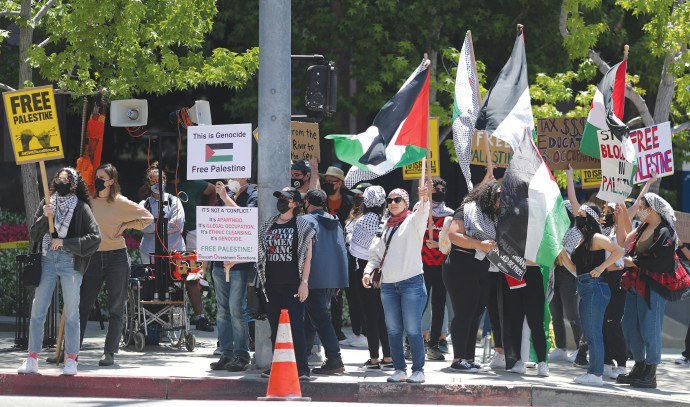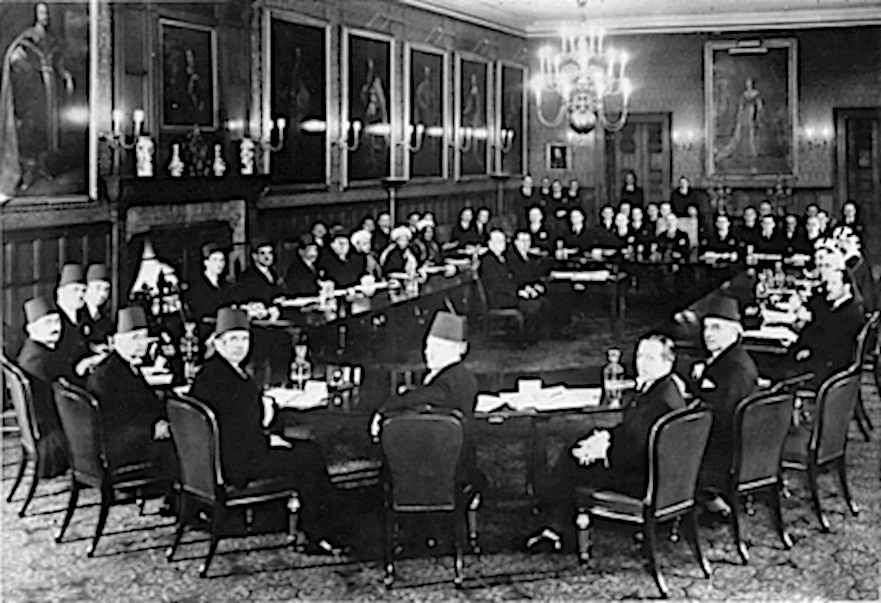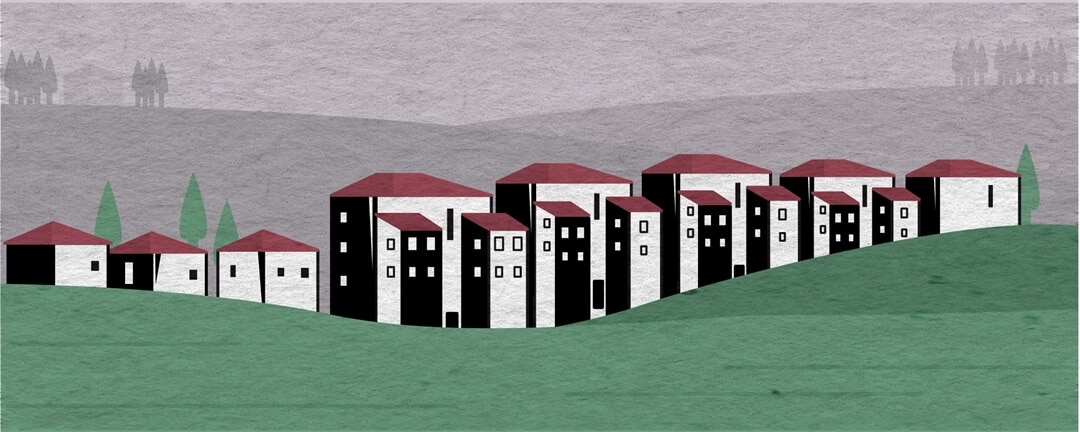rylah
Gold Member
- Jun 10, 2015
- 23,386
- 4,950
- 290
By the average level of response,
this is the most you can play a violin.
Follow along with the video below to see how to install our site as a web app on your home screen.
Note: This feature may not be available in some browsers.

Basel 125 years later: Our biggest challenge is anti-Zionism -opinion
We cannot guarantee a secure Jewish future without strong efforts to push back against the extreme anti-Zionism rampant in many countries and seeping into international forums.www.jpost.com

 www.jewishpress.com
www.jewishpress.com

Zionism = only country in the region where people are free, particularly Arabs and Muslims.The problems hinge on Zionism.

Danger of 'Jewish Problem' for United States in German 'Purge'
Opening of Gates to Refugees Might Introduce Disturbing Influence.
By WILLIAM BRUCKART WNU Service, National Press Bldg., Washington, D. C.
WASHINGTON. — Press service wires and cables and radio from abroad have been clogged for several weeks with hundreds of thousands of words about the plight of the Jews in Germany; about the abuses visited upon the Jewish race by the European madman, Hitler, and his camp followers; about the humanitarian pleas of our own President, Mr. Roosevelt, for appeasement of the conditions. There has been what I believe to be one of the greatest waves of emotion, waves of resentful national sentiment, that this country ever has known. I recall none like it, none as overwhelming, none as deep-seated as that through which we have been passing, and in my opinion our nation should have resented such outrages.
While no one with a heart can fail to grieve to a greater or less extent about the indescribable harshness, the unforgivable meanness of Hitler, it occurs to me that we should begin to temper these waves of emotion somewhat. There are other factors to be considered, factors and consequences of the thing that is now called "the Jewish problem," that require calm reasoning. In other words, let us say that America is and must remain for Americans, and charity, while it is sweet, cannot be exploited, or carried to extremes simply because we feel a sadness for a group upon whom an injustice has been sent. Like millions of other Americans, I am hopeful that some way will be found to aid the Jews who are being driven out of Germany, but I am unwilling that we, as a nation, shall create additional and unwarranted difficulties for ourselves by extending a helping hand. Therefore, the United States must not be the goat.
It is one thing to render aid. It is quite another thingto inject into our own bloodstream of national life additional elements without knowing what those elements are. After all, the damage is something that we did not cause; the injured are a people who have no knowledge of our way of doing things and may never cooperate with us, and we must prevent being dragged into the other fellow's fist fight.
I suppose there are very few persons in the United States who do not believe that Hitler's "purge" of German Jews constitutes a blot upon modern civilization. I know that leading Germans in the United States wish there were ways and means to stop the action. There can be no defense of the outright seizure of $400,000,000 of money from the Jews of Germany under the guise of a "fine" although there is a lesson of warning in it. ...
....
The unwanted race is simply the victim and a knowledge of how its members have had the sufferings brought upon them adds little or nothing to the search for a method to protect their lives. Where are they to go? That is the real question. Hitler doesn't care where they go or what happens to them. Some one else has to lead the way. Our nation has joined in that leadership, and rightly so. But we have policies and principles and traditions which must be respected. If, in our eagerness to help the German Jews, we should transgress those established principles, then we, as well as the Jews,will have to pay a penalty.....
We ought not kid ourselves. There are many persons swearing allegiance to the United States who do not like Jews. Those persons may be otherwise good citizens, but they distrust a Jew because he is a Jew, making no distinction between individuals. It is stating nothing new to say that there has been almost a steady undercurrent of criticism of Mr. Roosevelt from certain quarters because Jews have been given prominent places in the New Deal. I think it is not stretching the imagination at all, therefore, to point to the Jewish problem as one that may become involved in politics at some future time, although I hope it never does.
Mr. Roosevelt has proposed removal of some of the immigration restrictions as a means of bringing into this country more German Jews than our immigration laws now permit. In so doing, he verged on politics himself. Any one familiar with the debates on immigration policies in the early 1920s must recall the severity of that battle. The issue was whether we, as a nation, were going to be haven for all corners and just hope that they would do things the American way, or whether we should restrict the number coming here to live to a number which could be absorbed into our national life. Labor unions and most employers favored the restrictions, and when we think of the number of unemployed in the last five or six years—people fed and clothed by the federal government—it appears that we allowed too many to come in. It seems we could have excluded all of them to advantage.
Behind the scenes of the immigration restriction also was a determination on the part of Senator David A. Reed of Pennsylvania, then a senate power, to prevent introduction into the United States of all kinds of "isms." The senator foresaw the spread of radicalism by means of entry of the European backwash and rubbish. There was not much discussion of this phase because our government did not want to offend any foreign nation. It was a basic reason, however, and it is too bad that it was not given more public consideration.
Fortunately, there can be no change in the number of foreigners admitted from any nation without action by congress. The United States can take only so many—something like 30,000 a year—of those purged Jews, unless congress amends the law. And when I say it is fortunate that there must be action by congress before there can be a change in policy, I mean no inferences.
In consideration of whether we ought to let a deluge of refugees enter, I cannot help thinking of a possible spread of trouble. For example, if our definite national position of protest against Hitler's policies should bring retaliation, every Jewish refugee allowed in this country would be clamoring for the United States to take revenge on Germany and Hitler.Their influence would be great because they could tell what happened to them and give an idea of what is happening.
As far as relations between Germany and the United States are concerned at the moment, all that can be said is that the United States has let the world know of its disapproval. When Ambassador Wilson was recalled, it was just the same as saying to the world of nations that Uncle Sam hasn't any respect for Hitler.



 decolonizepalestine.com
decolonizepalestine.com
The recent rise to prominence of a distorted and shallow understanding of identity politics in the US has been a boon to this kind of argument. Suddenly we see Zionism being detached from its material history and presented as an integral part of an identity. This is especially popular in the West, where young Zionists who are raised on propaganda and myths of this “amazing” Zionist project come to treat it as inseparable from themselves. Here, we see the cynical twisting of social justice language to declare that only Zionists may define what Zionism is -As if it was a subjective phenomenon, with no material reality, founders, history or effects- and that it was an attack on the Jewish people to describe it as colonial.
Myth: Zionism is not colonialism, just Jewish self-determination | Decolonize Palestine
Unfortunately for Zionists, the biggest obstacle to rebranding Zionism from a colonial ideology into a movement for self-determination is that the writings of Zionist founders are easily accessible.decolonizepalestine.com
This is rather humorous because the original Zionists legitimized their claim to Palestine exactly because they were colonists and superior to the natives. While I understand how it can be difficult to escape a worldview that was planted in you at a young age, there is a mountain of easily available resources and historic documents available to anyone who is even a little bit critical or intellectually curious.
When we speak of Israel as a settler colony, we refer to a very specific phenomenon. Settler colonialism differs from classic colonialism, in that settler colonialism only initially and temporarily relies on an empire for their existence. In many situations, the colonists aren’t even from the empire supporting them, and end up fighting the very sponsor that ensured their survival in the first place. Another difference is that settlers are not merely interested in the resources of these new lands, but also in the lands themselves, and to carve out a new homeland for themselves in the area.
The obvious issue here is that these lands were already inhabited by other people before their arrival.
The recent rise to prominence of a distorted and shallow understanding of identity politics in the US has been a boon to this kind of argument. Suddenly we see Zionism being detached from its material history and presented as an integral part of an identity. This is especially popular in the West, where young Zionists who are raised on propaganda and myths of this “amazing” Zionist project come to treat it as inseparable from themselves. Here, we see the cynical twisting of social justice language to declare that only Zionists may define what Zionism is -As if it was a subjective phenomenon, with no material reality, founders, history or effects- and that it was an attack on the Jewish people to describe it as colonial.
Myth: Zionism is not colonialism, just Jewish self-determination | Decolonize Palestine
Unfortunately for Zionists, the biggest obstacle to rebranding Zionism from a colonial ideology into a movement for self-determination is that the writings of Zionist founders are easily accessible.decolonizepalestine.com
This is rather humorous because the original Zionists legitimized their claim to Palestine exactly because they were colonists and superior to the natives. While I understand how it can be difficult to escape a worldview that was planted in you at a young age, there is a mountain of easily available resources and historic documents available to anyone who is even a little bit critical or intellectually curious.
When we speak of Israel as a settler colony, we refer to a very specific phenomenon. Settler colonialism differs from classic colonialism, in that settler colonialism only initially and temporarily relies on an empire for their existence. In many situations, the colonists aren’t even from the empire supporting them, and end up fighting the very sponsor that ensured their survival in the first place. Another difference is that settlers are not merely interested in the resources of these new lands, but also in the lands themselves, and to carve out a new homeland for themselves in the area.
The obvious issue here is that these lands were already inhabited by other people before their arrival.
The recent rise to prominence of a distorted and shallow understanding of identity politics in the US has been a boon to this kind of argument. Suddenly we see Zionism being detached from its material history and presented as an integral part of an identity. This is especially popular in the West, where young Zionists who are raised on propaganda and myths of this “amazing” Zionist project come to treat it as inseparable from themselves. Here, we see the cynical twisting of social justice language to declare that only Zionists may define what Zionism is -As if it was a subjective phenomenon, with no material reality, founders, history or effects- and that it was an attack on the Jewish people to describe it as colonial.
Myth: Zionism is not colonialism, just Jewish self-determination | Decolonize Palestine
Unfortunately for Zionists, the biggest obstacle to rebranding Zionism from a colonial ideology into a movement for self-determination is that the writings of Zionist founders are easily accessible.decolonizepalestine.com
This is rather humorous because the original Zionists legitimized their claim to Palestine exactly because they were colonists and superior to the natives. While I understand how it can be difficult to escape a worldview that was planted in you at a young age, there is a mountain of easily available resources and historic documents available to anyone who is even a little bit critical or intellectually curious.
When we speak of Israel as a settler colony, we refer to a very specific phenomenon. Settler colonialism differs from classic colonialism, in that settler colonialism only initially and temporarily relies on an empire for their existence. In many situations, the colonists aren’t even from the empire supporting them, and end up fighting the very sponsor that ensured their survival in the first place. Another difference is that settlers are not merely interested in the resources of these new lands, but also in the lands themselves, and to carve out a new homeland for themselves in the area.
The obvious issue here is that these lands were already inhabited by other people before their arrival.
Zionism = only country in the region where people are free, particularly Arabs and Muslims.
Arab commentator: Israel is the biggest success in over a century…The recent rise to prominence of a distorted and shallow understanding of identity politics in the US has been a boon to this kind of argument. Suddenly we see Zionism being detached from its material history and presented as an integral part of an identity. This is especially popular in the West, where young Zionists who are raised on propaganda and myths of this “amazing” Zionist project come to treat it as inseparable from themselves. Here, we see the cynical twisting of social justice language to declare that only Zionists may define what Zionism is -As if it was a subjective phenomenon, with no material reality, founders, history or effects- and that it was an attack on the Jewish people to describe it as colonial.
Myth: Zionism is not colonialism, just Jewish self-determination | Decolonize Palestine
Unfortunately for Zionists, the biggest obstacle to rebranding Zionism from a colonial ideology into a movement for self-determination is that the writings of Zionist founders are easily accessible.decolonizepalestine.com
This is rather humorous because the original Zionists legitimized their claim to Palestine exactly because they were colonists and superior to the natives. While I understand how it can be difficult to escape a worldview that was planted in you at a young age, there is a mountain of easily available resources and historic documents available to anyone who is even a little bit critical or intellectually curious.
When we speak of Israel as a settler colony, we refer to a very specific phenomenon. Settler colonialism differs from classic colonialism, in that settler colonialism only initially and temporarily relies on an empire for their existence. In many situations, the colonists aren’t even from the empire supporting them, and end up fighting the very sponsor that ensured their survival in the first place. Another difference is that settlers are not merely interested in the resources of these new lands, but also in the lands themselves, and to carve out a new homeland for themselves in the area.
The obvious issue here is that these lands were already inhabited by other people before their arrival.
This thread is about the creation of Israel, the UN and the British Mandate till 1948.Arab commentator: Israel is the biggest success in over a century…
Al Jazeera host calls Israel most successful project in 120 years; drama ensues
Tinmore found another piece of garbage written by anti Israel/Zionism nobody.The recent rise to prominence of a distorted and shallow understanding of identity politics in the US has been a boon to this kind of argument. Suddenly we see Zionism being detached from its material history and presented as an integral part of an identity. This is especially popular in the West, where young Zionists who are raised on propaganda and myths of this “amazing” Zionist project come to treat it as inseparable from themselves. Here, we see the cynical twisting of social justice language to declare that only Zionists may define what Zionism is -As if it was a subjective phenomenon, with no material reality, founders, history or effects- and that it was an attack on the Jewish people to describe it as colonial.
Myth: Zionism is not colonialism, just Jewish self-determination | Decolonize Palestine
Unfortunately for Zionists, the biggest obstacle to rebranding Zionism from a colonial ideology into a movement for self-determination is that the writings of Zionist founders are easily accessible.decolonizepalestine.com
This is rather humorous because the original Zionists legitimized their claim to Palestine exactly because they were colonists and superior to the natives. While I understand how it can be difficult to escape a worldview that was planted in you at a young age, there is a mountain of easily available resources and historic documents available to anyone who is even a little bit critical or intellectually curious.
When we speak of Israel as a settler colony, we refer to a very specific phenomenon. Settler colonialism differs from classic colonialism, in that settler colonialism only initially and temporarily relies on an empire for their existence. In many situations, the colonists aren’t even from the empire supporting them, and end up fighting the very sponsor that ensured their survival in the first place. Another difference is that settlers are not merely interested in the resources of these new lands, but also in the lands themselves, and to carve out a new homeland for themselves in the area.
The obvious issue here is that these lands were already inhabited by other people before their arrival.
Tinmore found another piece of garbage written by anti Israel/Zionism nobody.
And NOBODY is the right word for who wrote it because there is no name attached to it.
A coward's way to not be caught, even when they are caught. Lying about Jews and Israel. As always.
Nearly 13 years posting about Israel. A wasted life.Tinmore found another piece of garbage written by anti Israel/Zionism nobody.
And NOBODY is the right word for who wrote it because there is no name attached to it.
A coward's way to not be caught, even when they are caught. Lying about Jews and Israel. As always.
Dear Palestine: A Social History of the 1948 War
Resolution 181 didn't happen.Renowned Arab scholar Fouad Ajami: “The UN vote in 1947 was Israel’s title to statehood.
Another failure on the part of the pally retrogrades.Resolution 181 didn't happen.
Fouad Ajami was a renowned scholar. You’re not.Resolution 181 didn't happen.